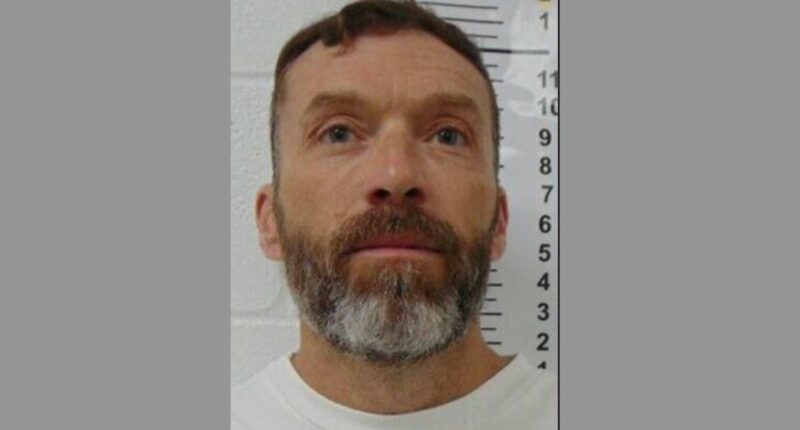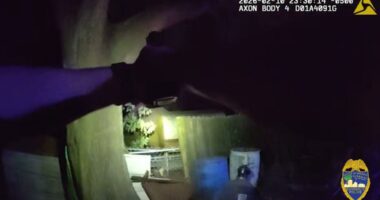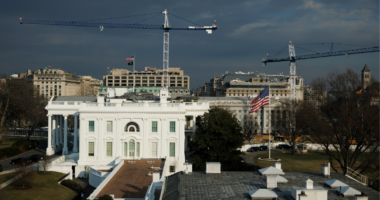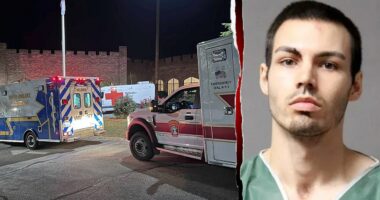Share this @internewscast.com
A death row inmate in Missouri was executed Tuesday night after the state’s governor denied his clemency petition.
The Missouri Department of Corrections confirmed that 48-year-old Lance Shockley was executed at the Diagnostic and Correctional Center in Bonne Terre, being declared dead at 6:13 p.m. local time. Authorities had earlier indicated that his execution would be carried out through lethal injection.
Shockley was found guilty of first-degree murder for the 2005 fatal shooting of a Missouri state trooper, according to court documents. Despite this, Shockley maintained his innocence over the 20 years that followed, with his legal team arguing through numerous appeals that he was denied a fair trial and sentencing—arguments consistently countered by the state.
Missouri Governor Mike Kehoe announced on Monday his decision to deny Shockley’s request to halt the execution, thus allowing the corrections department to continue with the planned lethal injection at the state prison in Bonne Terre.
“Mr. Shockley has been granted every legal safeguard guaranteed by the Missouri and United States Constitutions, and his conviction and sentence will be enforced for his heinous and intentional crime,” Kehoe stated in his announcement. “Missouri is committed to pursuing justice to its fullest measure, and executing Lance Shockley’s sentence demonstrates this dedication.”
A jury found Shockley unanimously guilty of the murder of Missouri State Highway Patrol Sgt. Carl Graham, who was killed at his residence on March 20, 2005, as noted in court documents. During Shockley’s trial, prosecutors argued that prior to Graham’s murder, he was probing into Shockley’s involvement in a November 2004 car accident that resulted in the death of Shockley’s friend, a matter classified as manslaughter.
It was alleged by prosecutors that Shockley killed Graham to impede the investigation into the accident. They contended that Shockley drove to Graham’s residence, waited for him, and upon his return, fired multiple shots at the trooper as he exited his vehicle, before fleeing the scene.
The prosecution said Shockley had borrowed a red Pontiac Grand Am from his grandmother on the day of the murder, and witnesses reported seeing a red car parked near Graham’s home around the time it happened, according to court records. They also said bullet fragments found at the property of Shockley’s uncle matched those recovered at the scene of the shooting.
But Shockley’s attorneys have argued the state’s case against him relied predominantly on circumstantial evidence. They also say the state failed to conduct DNA testing on “numerous pieces of critical evidence” found at the site of Graham’s murder.
“From the beginning, this case has suffered from a failure of due diligence,” said Jeremy Weis, one of Shockley’s attorneys, in a July statement released through a website advocating for his client’s clemency.
“There are significant issues with the prosecution’s timeline. Several other viable suspects were overlooked and to this day, numerous pieces of critical evidence, up to 16 items, have never been tested for DNA,” Weis’ statement continued. “These items could hold the key to the truth to what really happened on March 20, 2005. Despite these facts, the court denied our motion to conduct DNA testing.”
Although jurors convicted Shockley in Graham’s murder, they could not agree on whether to sentence him to life in prison or impose capital punishment, court records show. Because of the deadlock, a trial court judge presiding over Shockley’s case decided the sentence, and sentenced him to death.
Missouri and Indiana are the only two states in the U.S. where a judge can impose a death sentence in situations where the jury deadlocks on sentencing, according to the Death Penalty Information Center, a nonprofit organization that shares data and other resources about capital punishment but does not take a position on the issue.
















